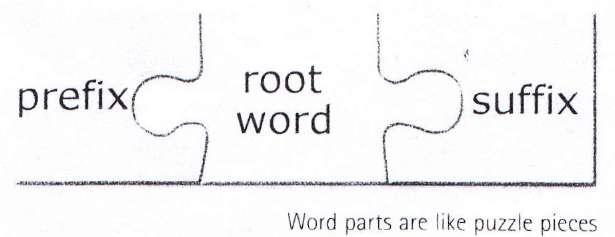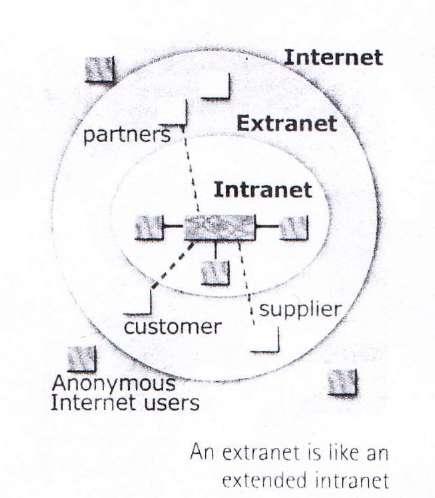ВУЗ: Не указан
Категория: Не указан
Дисциплина: Не указана
Добавлен: 14.10.2024
Просмотров: 72
Скачиваний: 0
СОДЕРЖАНИЕ
Word-building. Common prefixes. Common suffixes.
It is useful to know how to build up word families by adding suffixes. Look at these examples:
Word Combinations. Simple Tenses. Everyday English and Technical English.
The neologisms. Continuous Tenses. Computers in our life.
The numeral. Perfect Continuous Tense. The Founder of Microsoft.
To sum up furthermore moreover secondly finally however
2) Give the definition of the terms
Three basic steps of the computer
Interacting with your computer
Lesson 12-14. Computer Memory. Ram. Rom. The Use of Active and Passive Voice.
Modal verbs and their equivalents.
The Power of Programs. Modal Verbs with Passive Infinitive
Lessons 4-5. Software. Application Software
Об'єктний інфінітивний зворот. Складний додаток.
Об'єктний інфінітивний зворот вживається після дієслів:
Суб'єктний інфінітивний зворот
radio + antenna = radioantenna;
steam + ship = steamship.
Семантичний спосіб творення термінів. Проблеми, пов'язані з багатозначністю слів та робочим сленгом тієї чи іншої галузі
head: у загальному слововживанні — голова, керівник; в журналістиці — рубрика, заголовок; в будівельній техніці — верхній брусок рами вікна або дверей; в гідротехніці — гідростатичний напір; в машинобудуванні — бабка верстата.
Різне семантичне значення термінів в різних галузях науки і техніки
revolution: в історії — революція; в механіці — повний оберт колес).
Явище, коли звичайне слово набуває значення терміну, називається термінологізацією.
Фальшиве словотворення, тобто утворення термінів за ано логією в сучасній англійській мові.
Зразки фальшивого словотворення (алкоголік трудоголік, політикоголік; гамбургер чізбургер, біфбургер).
За аналогією з іменником alcoholic були утворені нові слова:
bookaholic (бібліофіл, людина, що палко закохана в книги), golfaholiс (людина, іцо палко захоплюється грою в гольф), workaholic (людина, що одержима роботою), politicoholic (людина, що цікавиться тільки політикою), spendaholic (людина, що любить тратити гроші).
Ще один яскравий зразок фальшивого словотворення — це Hamburger, відомий бутерброд «гамбургер», тобто булочка з біфштексом. Назва старовинного німецького міста Гамбурга, де колись придумали такі бутерброди, була сприйнята американцями як «ham» (шинка, ветчина) і, відповідно, слово «bürg» — як булочка. Насправді німецькою мовою «Burg» означає «місто». Почали утворюватись і множитись різні слова, що означають бутерброди: Beefburger (бутерброд з яловичиною); Cheeseburger (бутерброд з сиром), Sausageburger (бутерброд з сосискою).
Зараз ці «неправильні» слова вважаються нормативними в США та Великобританії.
Слово-американізм «user-friendly» (настроєний доброзичливо, готовий допомогти людині) прийшло до нас з комп'ютерної техніки. «User» — це користувач комп'ютера. На основі цього терміну виникли складні слова: customer-friendly (готовий надати допомогу покупцеві), fanner-friendly (доброзичливо настроєний до фермерів політичний діяч в Америці), Nature-friendly (той, хто виступас за охорону природи).
*Task I. Translate into Ukrainian and state the part of speech of the following words.
to wonder – wonder – wonderful; to explore – explorer – exploration; to conquer – conqueror – conquest; true – truth; to construct – construction – constructive; to exploit – exploiter – exploitation; to unite – unity – unit – union; to decide – decision – decisive; to consider – consideration – considerable – considerably; to care (for) – care – careful – careless – carefully – carelessly.
*Task II. Translate the following word-combinations into Ukrainian.
common usage, automatic dishwashers, result from, common char-s, primitive automatic machines, controlling functions, electronic computing devices.
*Task III Translate the following word-combinations into Ukrainian paying attention to the attributes before the Nouns.
Logic analysis, analysis problems; problem formulation, formulation problem; a radio-visual communication equipment; a communication medium; mobile radio-communication systems; the chain reaction theory; air pressure; meter readings; special purpose devices; flight control centre; high-efficiency apparatus; super-speed computers; peace-time atomic energy application, two-way radio communication.
*Task IV. Underline the suffixes and translate the words
Construction, constructional, protection, radiation, harmful atomic dangerous, probably, repeatedly, simply, production, technical, ice-breaker.'
* Task V Group the following words according to
a) similar meaning:
considerable; put into commission; conventional; obtain; operate;
shortage; at the same time; manufacture; design; quantity; for example; yet
simultaneously; get; project; amount; however; for instance; put into service; great; ordinary; produce; lack; work
b) opposite meaning:
similar; successful; necessary; output; insignificant; the best; directly; inexhaustible; fast; continue
input; discontinue; the worst; significant; exhaustible; slow; dissimilar; unsuccessful; unnecessary; indirectly
*Task VI Group the synonyms from the following words and word-combinations, translate into Ukrainian.
mean, likewise, motion, size, combine, attain, rise, until, receive, release, be of importance, be in progress, distant a
achieve, increase, be underway, remote, get, set free, be of significance, join, dimension, movement, similarly, average, till
*Task VII. Build nouns using the models: verb + ance, verb + ment; noun + (at)ion
to indicate, to convey, to appear, to install, to develop, to compute, to translate, to invent, to require, to base, to move to operate
**Task VIII. Translate the following words into Ukrainian paying attention to the suffixes
General—generalize—generalization; evidence—evident—evidently; define—definition—definite—indefinite; similar—similarity—dissimilar; oxide — oxidize — oxidation; transport — transportation; pole — polar — polarity — polarize—polarization; extend—extention — extensive—extent; regular — regularity—irregular—irregularity—irregularly; exact— exactly — exactness; convince — convincing — convincingly.
*Task IX. Give antonyms to the following words and translate them into
Ukrainian.
near, old, after, natural, uncommon, unable, impossibility, unhappiness.
*Task X. Build: a) nouns; b) adjectives; c) verbs:
|
adjective + ness |
noun +ess |
noun +ary |
noun + ise |
|
polite, cold, happy, weak, king, great |
Actor Host steward |
Second Element revolution |
Organ Apology revolution |
**Task XI. Arrange the following words according to:
-
similar meaning: enormous, excessively, various, great, erection, different, brilliant, a great deal of, splendid, extremely, building, include, involve, many;
b) opposite meaning: different, simplicity, slowly, the same, military inconvenience, non-military, complexity, rapidly, convenience.
**Task XII. Translate the following word-combinations
-
practical work; experimental plot; basic knowledge; research workers; designated route; chief problem; electronic device; electric current; an assortment of; air humidity; wind speed; thickness of snow; field work; at any speed.
*Task XIII. Build corresponding a) nouns, b) verbs, c) adjectives by way of conversions and translate them into Ukrainian
|
a) verb-noun |
b) noun-verb |
c) verb-adjective |
|
to turn |
a number |
to correct |
|
to work |
a point |
to research |
|
to switch |
a face |
to hand |
|
to point |
a hand |
to spring |
|
to start |
a date |
to summer |
|
to end |
|
|
*Task XIV Build worlds using the modeles:
-
Root+dom
mis+verb
un+adjective
pre+verb
free
wise
king
to inform
to take
to understand
pleasant
happy
known
to fabricate
to strees
to establish
**TaskXV Translate the following group of synonyms into Ukrainian.
really, actually; indeed, in fact; to occur, to happen, to take place; often, frequently; ordinary, usual, common, general; to reduce, to decrease, to diminish; to turn, to rotate, to revolve; to connect, to join; enough, sufficiently; for example, for instance; completely, entirely, fully; device, instrument; profound, deep.
Common prefixes
We can form new words by using prefixes and suffixes, e.g. micro-process-or
prefix + root + suffix.
Prefixes come before the root word and usually change its meaning. Here are some common ones in ICT.
-
Negative prefixes meaning 'not': non- Non-volatile memory retains its content when the power is turned off. un- An unformatted disk has not been 'initialized'; it doesn't allow data to be stored.
-
Prefixes of location: trans- (= across) Data transmission can be wired or
wireless.
inter- ( = between) The Internet consists of millions of
computers interconnected in a global network, intra- ( = within) An intranet is a private network,
restricted to a company's internal use. extra- (= outside, in addition to) An extranet links a
company with its customers and suppliers, tele- (= over a distance) Teleconferencing enables users in different places to talk to and see each other.
-
Prefixes of size: super- (= large, better) A supersite offers links to other
websites on a certain topic, semi- (= half, partly) A semiconductor is neither a good conductor nor a good insulator (e.g. silicon, used to make computer chips), micro- (= small) A microbrovvser is designed to display web pages on PDAs and mobiles. Prefixes of size are also used in units of memory like megabyte and gigabyte.
-
Another common prefix is re- in words like reprint, rewritable and reboot, to start the computer again.
Verb prefixes
Prefixes used to form verbs which mean 'to cause to be something':
en- encrypt: to change data into a secret code so that only someone with a key can read it up- update: to modify data in a file and thus ensure the file reflects the latest situation
upgrade: to add or replace hardware or software in order to expand the computer's power upload: to send files to a central, often remote computer; compare with 'download'
Prefixes that mean 'the opposite of an action' or 'to reverse an action': de- decrypt: to convert secretly coded (encrypted) data back into its original form decompress: to restore compressed data back to its original size debug: to correct errors in a program or system
defragment: to reorganize data stored on disk by putting files into contiguous order un- uninstall: to remove hardware or software from a computer system
The prefixes e- and eyber-
The e- prefix means 'electronic'; cyber- describes things relating to computer networks, e- I he term e-learning refers to the use of ICT to provide education and training.
An e-zine is a magazine or newsletter published online.


**Use words from A opposite to complete these sentences.
-
Medical researchers in main countries exchange information through email and
-
memory (e.g. ROM or Hash memory) is able to hold data when switched off.
-
Blogs and weh portals arc examples of ; they offer news, opinions and web links.
-
are used for making integrated circuits and computers.
-
I'll post the agenda tor next week's meeting on the company's
-
A home network is two or more computers to form a local area network.
Complete these definitions with words from A opposite.
-
: a disk that is completely blank, so information can't be recorded onto it
-
: a network that allows communication between a company and the people it
deals with
-
: the process of sending (.lata over a communication channel
-
: to restart the computer, without switching it off completely
-
: a web browser designed for small screens on hand-held devices
**Complete these sentences with words from B opposite and make any necessary changes.
-
The program ran so slowly, I had to un it.
-
Your financial information is fully en and cannot be accessed.
-
Messages encrypted using a public key can only be de by someone with
the corresponding private key.
-
The computer compresses and de a colour image in less than a second.
-
Once you've written a program, you have to test it and cle it to remove all

